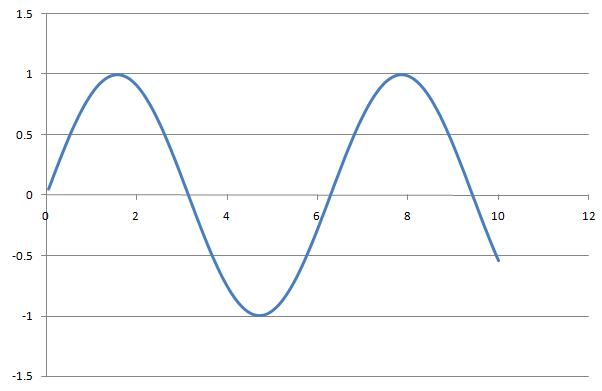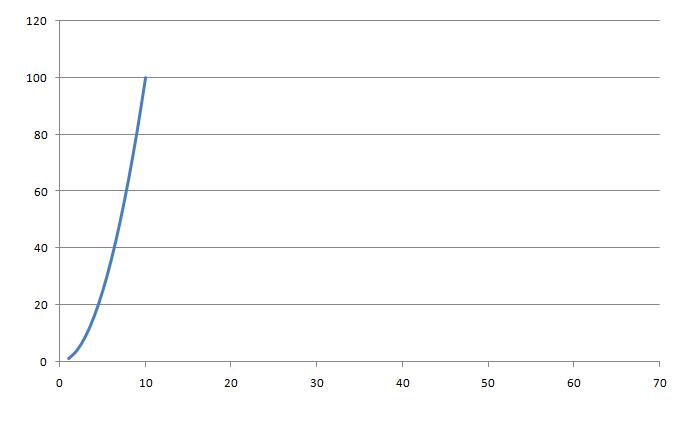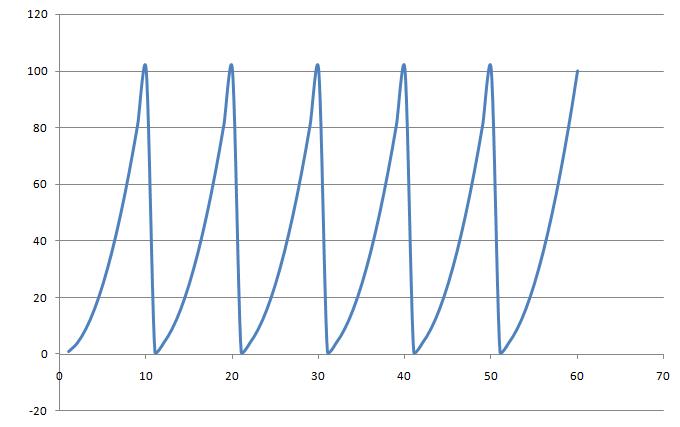Homework 2_ECE301Fall2008mboutin - A - B - C - D - E
Periodic Signals Revisited
1. By sampling at different frequencies the signal $ y=sin(x)\! $ can appear as both periodic and non-periodic in DT. For example:
$ y[n]=sin[n] \! $ with a sample rate of 1
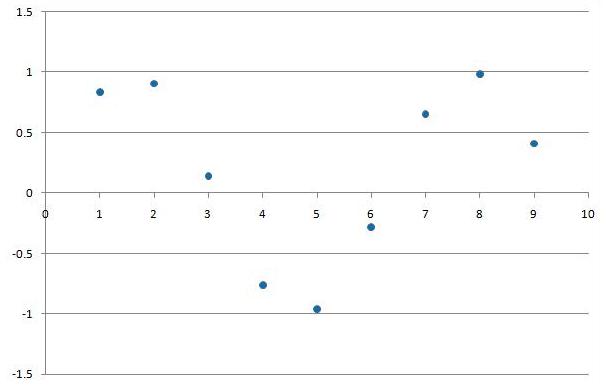
$ y[n]=sin[n] \! $ with a sample rate of $ pi/4 \! $
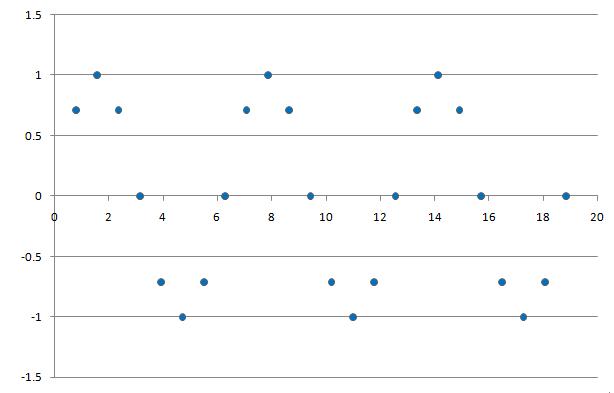
The second graph has no integer value of N where y[n]=y[n+N], thus it is non-periodic.
The third graph clearly shows there is an integer value of N where y[n]=y[n+N], thus it is periodic.
2. By adding up several cycles of the function $ y(x)=x^2\! $ where $ x=[0, 10]\! $ we can turn a non-periodic signal into a periodic signal:

